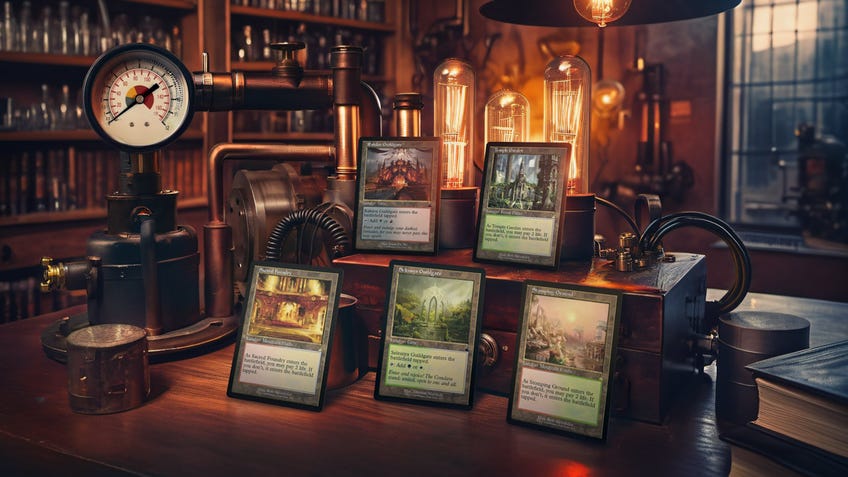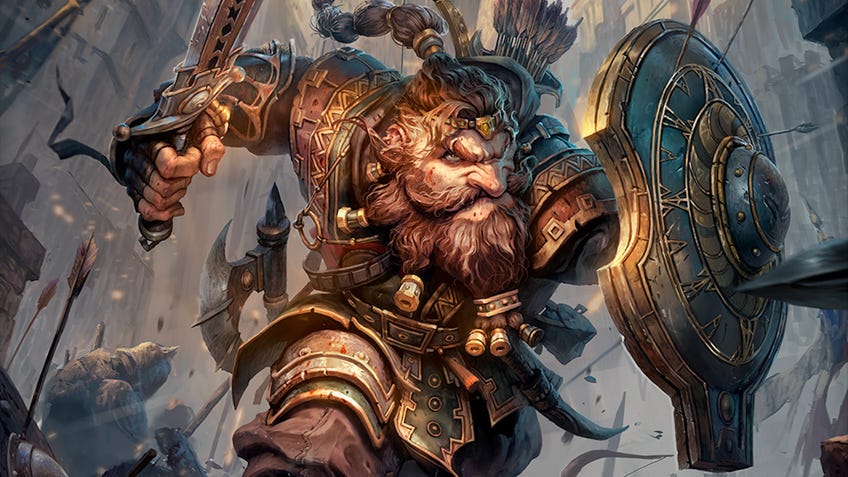Dungeons & Dragons maker says it doesn’t publicly address every AI allegation to protect artist privacy
“Our preference is to handle the issue and the artist relation internally where possible.”
Over the past two years, Wizards of the Coast has faced a growing number of allegations that AI tools (large language models, generative tools such as Midjourney, etc.) were used to create official artwork and marketing for both Dungeons & Dragons and Magic: The Gathering. Today, the publisher released an FAQ that attempts an explanation of their rationale and process, but leaves just as many questions unanswered.
The support webpage (which will be periodically revised in the future) claims that Wizards has “made mistakes while at the same time have also seen artists and their work misidentified as problematic in a variety of ways,” referencing both clear and actionable instances where generative AI art snuck past their detection tools while also referencing instances where the public fervor to smoke out bad actors has led to false positives.
Speaking of the company’s detection tools, one of the biggest mysteries has been the methods by which Wizards pinpoints offending artwork. The FAQ claims that the company relies on both public and private reporting to identify where they should apply scrutiny, running its standard protocol again and chatting with the artist in question. What does that standard protocol look like from the inside? Well…
“We are regularly evaluating resources we could use to help us detect generative AI. It is important to us that we continue having a "human in the loop" regardless, especially since these tools are quite new,” the FAQ reads.
That’s the long and short of Wizards’ answer, alongside the claim that artists receive handbooks unique to each property that outlines the artist’s responsibility regarding generative AI tools. This lack of procedure will likely frustrate players who would rather see offending illustrators pilloried in the public before losing their contract to create for D&D and MTG. That’s another point where fans and the company have starkly different opinions.
Wizards is very clear that, whenever possible, it would prefer to handle the issue internally in order to protect the privacy of the individual in question. If they do need to make a public statement, that document will likely be “clear and concise and, hopefully, prevent further churn on the issue—both for the artist in question and for us.” That’s not to say they won’t permanently close the door to work but that the public is not owed a business decision dressed up as a public trial. Wizards doesn’t want any of its artists to be subject to harassment.

Folks are likely to disagree with parts of this position as seemingly every company and publicly available product rushes to incorporate AI technology, whether that's Adobe’s editing software suite, Twitter’s predictably error-riddled Grok chatbot or Wizards' own corporate owner - Hasbro. Even Kickstarter has backburnered its AI adoption in the hope that it becomes memory hole’d, while more tabletop publishers rush to forswear its use in their game. If a company does not clearly denounce AI in their product, many will assume its happening on the sly. The result is a tense - and sometimes dangerous - environment of distrust and guesswork.
“Human beings are fallible, whether it is a conglomerate of human beings (like a company) or a single human being (like an artist.)” the FAQ states. “We want our community to know that we are working to ensure they can see us deliberating on how best to meet that commitment, even if we all occasionally stumble along the way.”

